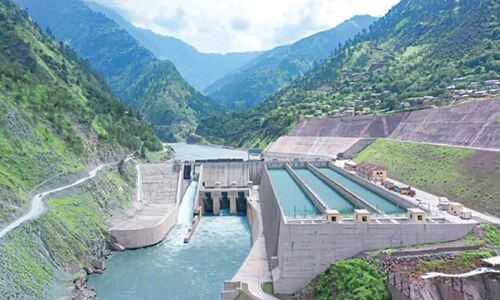Global experience shows that Special Economic Zones (SEZs), geographically defined and delimited areas to set up manufacturing and services industries, can prove to be an important vehicle for attracting international and domestic investment, diversifying and boosting exports, creating jobs, reducing regional disparities and encouraging the transfer of technology.
By offering an attractive mix of policy and fiscal incentives to investors, governments often insulate them from the uncertain external business environment that governs the industry operating outside of these areas.
Like China, India and South East Asian economies, Pakistan has also strived for decades to develop such zones to woo investment. But none of these past experiments have succeeded. Even the SEZ Act 2012, which was amended in 2016 to make these zones attractive for investors, has failed to produce desirable results because of inadequate incentives and bureaucratic involvement in their creation and operation.
The situation calls for an immediate revision of the strategy if the country is to encourage the creation of, and attract investment in, the existing or planned SEZs — especially the ones notified under the China-Pakistan Economic Corridor (CPEC) to persuade Chinese firms to relocate their textile and other value-added, export-oriented units to the country – by providing utilities and offering meaningful policy and fiscal concessions to investors.
SEZ investors complain of cumbersome procedures and inadequate concessions
In background interviews with Dawn, people involved in the development of SEZs under the CPEC initiative describe the procedure for their establishment as cumbersome and concessions offered to the investors inadequate. On top of that, the involvement of the Board of Investment (BoI) at every stage – from the approval of an SEZ to the selection of consultants/contractors for its development, allotment of plots to prospective investors and the approval of applications by investors for availing fiscal incentives allowed under the SEZ law – is frustrating and self-defeating.
As if that wasn’t enough, investors are also reluctant to invest in SEZs owing to the unavailability of utilities – power, gas and water. For example, some Chinese firms that bought plots in the under-construction Allama Iqbal Industrial City (AIIC), one of the three SEZs in priority under CPEC were reported to be delaying the construction of their facilities unless the management gave firm guarantees for the provision of electricity and other utilities.
A member of the board of management of the Punjab Industrial Estates Development and Management Company (PIEDMC) says successful SEZs around the world are managed and controlled ‘locally’ by their independent administrations and boards, offering affordable utilities and one-window operations.
In Pakistan, however, the situation is quite the opposite. The involvement of numerous federal, provincial and local agencies, from the BoI to power distribution companies, gas utilities and water and sewerage agencies, defeats the very idea of insulating these zones from the country’s general business conditions.
Then there are other issues such as the existence of multiple property transfer mechanisms depending on the location of an SEZ as well as obtaining visas and work permits hiring foreign workers. Investors will be more comfortable if a three-year work permit is issued for foreign workers. Additionally, the government needs to simplify the process of profit and capital gains repatriation for foreign investors.
The government has announced a 10-year tax holiday on investment in these zones before the end of June 2020 and a five-year tax holiday for units established after that. But this exemption isn’t fully available to investors because the government collects the bulk of income tax through the withholding regime.
So the entire scheme falls flat when an investor has to pay advance income tax — Section 113 of the Income Tax Ordinance makes it mandatory for every entity, including exporters operating anywhere in Pakistan, to pay the minimum income tax — and all kinds of withholding and advance taxes under Sections 148, 153 and 253 of the Income Tax Ordinance on raw material imports, local procurement of supplies from different sources and power consumption.
Thus, the government needs to exempt companies investing in SEZs from the withholding and advance income tax regime to actually make investment tax-free.
The SEZ Act 2012 also provides a one-time exemption from the payment of customs duty on the import of plant and equipment for industries being established in SEZs. However, this concession does not really matter because over 70 per cent plants and machines are imported from China and attract zero duty under the Pakistan-China Free Trade Agreement.
This concession will be meaningful only if the import of plant and equipment is also exempted from the payment of 17pc sales tax as well as withholding tax to reduce the capital cost of establishing a unit, particularly for small and medium-sized companies. Further, investors say, the government needs to extend the same tax incentives on BMR (balancing, modernisation and replacement) investments, which an industrial enterprise has to carry out every five years.
In order to make SEZs attractive for foreign and domestic firms, the government will not only have to revisit the policy and fiscal incentives given under the 2012 law but also fully empower the management and governing boards of these zones to take all kinds of decisions for facilitating them.
Published in Dawn, The Business and Finance Weekly, December 23rd, 2019















































Dear visitor, the comments section is undergoing an overhaul and will return soon.